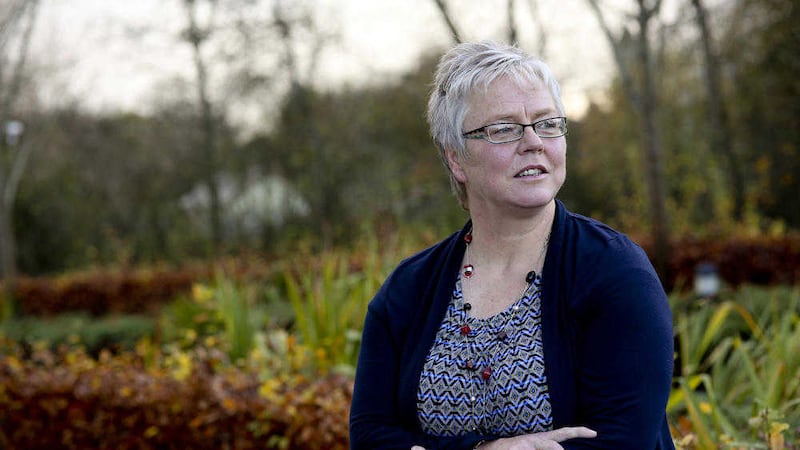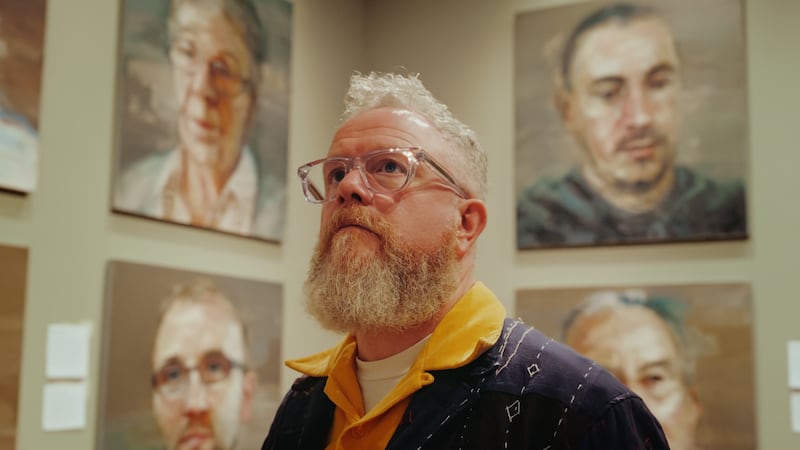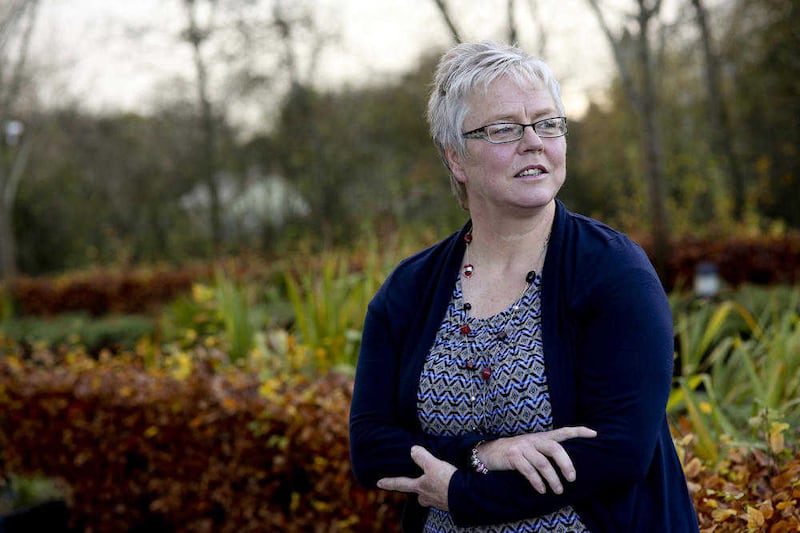THE death of someone we love is likely to be one of the most distressing experiences we will ever face. For Antrim woman Pauline Kelly (51), losing her husband Dermot to cancer last year reignited familiar feelings which she thought she had previously overcome.
Sixteen years ago, within a three-month period, Pauline lost two of her brothers and her first husband Gerard, who died aged just 35.
"Back then I was absolutely shell-shocked. I felt like a soldier in a battle and all I could manage was to get up in the morning and get my girls uniform ready," recalls Pauline, whose daughters were then age nine and 14.
Feeling "totally lost" she decided to seek solace from Cruse after first becoming aware of the organisation when they offered child-bereavement counselling in her daughter’s school.
"I can only describe Cruse as like coming out of the storm. I will never forget how every inch of that room looked the first time I went. Initially you are judging who you are about to pour out your precious memories and thoughts to – it's human nature. But that only lasted half an hour and before I knew it I was spilling the beans and feeling the weight drop off my shoulders.
"There were sessions that were very intense when he probably didn't understand what I was saying through the tears. But the counsellors are not condescending or judgmental and never promised they could help me or fix how I felt. But what they did was give me the ability to look and see what equipment I had to fix it."
More sorrow was to come: Pauline's counselling gave her the tools to cope with further deaths within her family – including that of her mum, who died of motor neurone disease in 2002 and another brother, who took his own life on Christmas Day that year.
Later, having started to get things back on track, she remarried in 2006 and was enjoying life with her new husband when tragedy struck again as Dermot was diagnosed with cancer.
During the 18 months of Dermot’s illness, the impact of seeing someone else she loved suffer so much, drained Pauline mentally and emotionally.
“Losing someone you love to cancer is truly devastating. Little things you take for granted change and disappear so suddenly. I always remember that I used to love holding my husband’s hand. However, from the day he was diagnosed until the day he died, this took on a totally different feel. It went from being a loving gesture to him grabbing my hand in fear or holding it intently in anger," she recalls.
With the support of palliative care from the charity Macmillan Cancer Support, Dermot spent his last three weeks at home.
"I slept on the settee for those three weeks and anything he wanted, he got. But you pay for that further down the line," says Pauline. When he passed away last July, she was left engulfed by overwhelming feelings of emptiness.
At the time Cruse, in response to a 15 per cent increase in requests for support in relation to a death by cancer, was piloting a new bereavement service in partnership with Macmillan. This unique service provides bereavement counselling specifically for people who have lost a loved one to cancer.
The Cruse counsellors, as well as receiving comprehensive training in bereavement counselling, undertake further training with Macmillan specifically to increase their skills and knowledge around cancer.
The service, which provides either face-to-face support or information and literature, depending on what the client prefers or needs, is the first of its kind throughout the whole of the UK and has now been rolled out across Northern Ireland.
Pauline was one of the first to take part in the new bereavement counselling course and is grateful for the counselling and peer support she received. “Just walking into that room and hearing people's experiences makes you understand that you're not alone, that it's OK to feel this way," she explains.
There are people there from all walks of life but the common thread between us meant nothing else matters."
In each session the participants shared their experiences and topics such as coping strategies and moving on were covered.
"The counselling was on a Tuesday and on the Wednesday I would feel like I was surrounded by a haze. It was like the sediment in the bottle had been shaken and everything brought to the fore again. Yet by Thursday it was the sense that it was really helpful and a little more would fall into place," adds Pauline.
“I would have been totally lost were it not for Cruse. They’re very gifted in that they know how to say so much just by saying so little. They stop you from becoming a bitter, twisted and angry person. They listen, they understand the complexities of losing a loved one to cancer but they also provide you with a wee wall of defence.”
So does she believe in the saying 'Time a healer'? "I recall my first counsellor explaining that if you draw a circle and then a circle within that circle and colour it in black, the blackness represents everything you've gone through – your grief, pain and agony and dark, dark times. The darkness doesn't clear.
"Your loved one will always be in your heart. I will always remember the the last three weeks I watched my husband die in the house of cancer. So rather than that darkness clearing, what you need to do is make that outer circler bigger and wider by making new experiences."
Pauline, with the help of her family and two grandchildren, has used this philosophy to distance herself from that inner darkness. She has returned to her job, enjoys walking, the cinema and holidays.
"The worst thing you can do is stay alone in the house with your thoughts," she says, encouraging others who have been bereaved to avail of this free bereavement service.
"It's not healthy to bottle up your grief. I had talked to myself for long enough. It was great to speak to someone who was not full of opinions and bounce my thoughts off."
:: For further information and support contact the the Cruse helpline on 0844 477 9400, or the Macmillan Support Line (freephone) 0808 808 00 00 or visit cruse.org.uk/northern-ireland.



